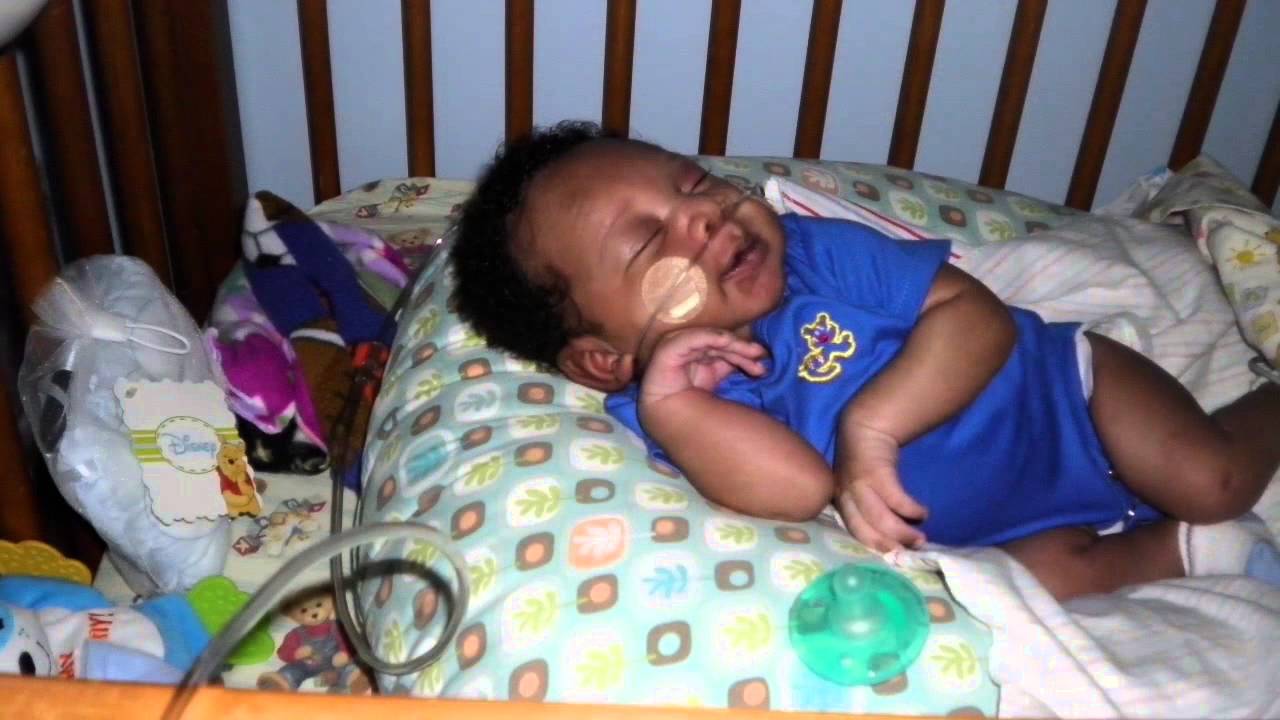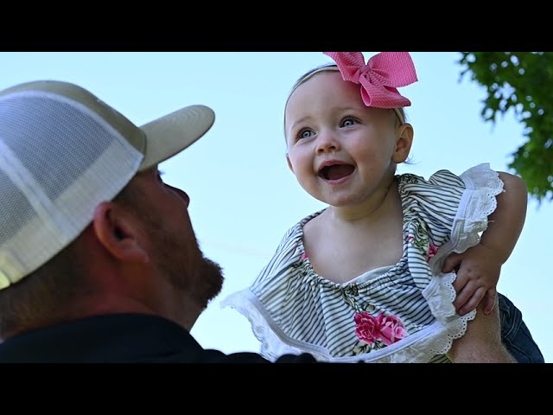Zatorian Green
- Author: Zatorian Green
- Category: 2013

The heart is an intricate organ: a communicating network of veins, chambers, arteries and valves all relying on each other to work in steady rhythm, ensuring proper blood and oxygen supply for the body to function. You might compare it to a jigsaw puzzle—each piece makes up a portion of the big picture, and when one is missing, the puzzle is incomplete.
When Zatorian Green was born, his heart was an unsolved jigsaw puzzle. Now that he's almost 2 years old, his doctors are still working to put all the pieces together.
"Zatorian was a surprise because throughout my 20s, my doctors had been telling me I probably wouldn't be able to have children naturally," says Tenea Jones, Zatorian's mom. "I went to the doctor and she told me I was pregnant. I didn't believe it. She did a sonogram, and there he was!"
Tenea was placed on bed rest during her last trimester because of the strain placed on her back from the baby, but otherwise she had a healthy, normal pregnancy. She opted to deliver via C-section and had a standard delivery. Her mom cut the umbilical cord, and she cradled her newborn son—it was a joyous day for their family. But not too long after Zatorian made his entrance into the world, Michael Wagnon, DO, Shannon pediatrician, noticed something wasn't right.
"Zatorian had some mild respiratory distress, and as the day progressed he got worse," Dr. Wagnon recalls. "We thought something might be wrong with his lungs, and the more we investigated we determined he had a congenital heart defect."
Tenea was recovering from the delivery when Dr. Wagnon informed her that something was going on with her son's heart.
"Dr. Wagnon came in and said he didn't want to worry me, but Z had some complications with his heart, and he had called the Children's Methodist flight team for transport," Tenea says. "All I could think was, ‘Did I do something wrong?' and ‘How did this happen?' He told me they have the best pediatric cardiologist and neonatal cardiac team and Zatorian would be in good hands. It happened so fast I didn't have time to panic. I was able to go down to the NICU and see him and we prayed over him and for the doctors and flight team."
The type of defect Zatorian was born with is so rare it does not have a common name. Dr. Wagnon uses the jigsaw puzzle analogy to best describe it and says it's a combination of several heart defects. Zatorian was missing the "great wall" that separates the blue blood chamber from the red blood chamber of the heart, so all of his blood mixed together. He has a double-outlet right ventricle, severe pulmonary stenosis and transposed great arteries. This means the large arteries that send oxygenated blood to the brain and the body are switched.
Dr. Wagnon also says any type of congenital heart defect is rare in newborns. But when a defect such as Zatorian's occurs, it's easier if it's noticed early, in the hospital, instead of being picked up at home or in the doctor's office two or four weeks later.
Tenea was in recovery and could not leave the hospital with her son. Her mom flew to San Antonio with Zatorian, and her brother and sister-in-law drove her to San Antonio as soon as she was released from the hospital. When she arrived at the NICU, she saw her son in a warmer hooked up to multiple tubes and monitors.
"They told me they had to keep him sedated so they could monitor him properly," Tenea says. "I wasn't really able to hold him, but I was able to be there with him, sing him songs, talk to him and just let him know I was there."
Zatorian had his first heart surgery when he was almost a week old and a second surgery at 5 1/2 months. A third round of surgery will be performed between the ages of 2 and 3.
"During his first surgery, they widened the great artery that sends oxygen to the brain," Tenea says. "They also started the process of making his heart a double-chamber heart. They moved the blue blood cavity to its own part of the heart. This allows his blood to mix where it's supposed to and not make his heart work twice as hard. During the second surgery, they began the next phase of moving the blue blood chamber and cleaned out the great artery to prevent scar tissue from forming."
Zatorian's healthcare providers were worried about the effects the surgeries and sedation might have on his hearing and vision, but he has not encountered any complications. Tenea does have to monitor him more closely than a normal toddler. And looking at Zatorian, you would never know he was born with a dysfunctional heart and has had two open-heart surgeries.
"Before we left the hospital, they gave me what we call 'Zatorian's Bible,'" Tenea says. "From the time we brought him home to his second surgery, we were weighing him three times a day, measuring the amount of liquids he took in, and monitored his bowel movements and urination. Every time he sneezes or coughs, I document it. Most mothers are worried about the first step, first word and first tooth. I worried about those things, too, but I keep a day-by-day catalog of him in that book."
Zatorian does not have any developmental issues, but he does have a low immune reserve. Therefore, if he gets sick or contracts a respiratory illness, he deteriorates quickly and requires more oxygen than normal. According to his medical condition, anytime his temperature exceeds 98 degrees, he is running a fever. A common cold can place him in the hospital.
"Z caught a cold from my nephew, and it turned into a serious infection," she says. "He had to be hospitalized, and the infection was so severe that his labs and cultures were testing positive for leukemia. His body was fighting so hard it was sending out leukemia cell blasts, and they were showing up positive on the labs. Once he received enough antibiotics and his own immune system caught up to it, the infection was eradicated and his cultures came back clean. All of that stemmed from an hour of interaction with a child that had a common cold."
A normal person's heart sounds like a drum beat when listened to through a stethoscope. Zatorian's sounds like a washing machine. But that's normal for him. Doctors told Tenea as long as she hears the washing machine sound, her son's heart is working correctly. If the sound is absent, then something is out of rhythm or Zatorian's heart is working too hard.
"We try to keep him calm, because Z is what I call a 'breath holder,'" Tenea says. "He holds his breath when he cries or gets upset and if he does this for too long it can knock his heart out of rhythm. We know he's out of rhythm because he will start panting. We have a pulse oximeter at our house that is calibrated to his size, and we hook him up to that until he is stabilized. I think I try extra hard to keep him protected so this doesn't happen because it's very scary."
Dr. Wagnon praises Tenea for being very in-tune to her son's condition.
"She monitors him very closely and takes good care of him," he says. "Zatorian gets great support in Brady, but he's a little over an hour from us and more hours than from San Antonio. When he starts to get sick, Tenea has to call us quickly to determine if she needs to come to San Angelo or go to the Brady ER for transport to San Antonio where he receives his cardiac care. They also utilize the telemedicine clinic for some of Zatorian's appointments, which is funded by Children's Miracle Network."
Zatorian will take heart medications for the rest of his life, but he doesn't let that get in the way of his toddler activities. His mom describes him as a little ball of energy.
"From the time his feet hit the floor in the morning until the time he loses the battle with the sandman at night, he's just going, going, going," Tenea says. "There was nothing I did throughout my nine months of pregnancy that I could have done differently. Z just happened to be made and born that way. I think it will make him a stronger, better person because every day he overcomes something different."

.jpg)

.jpg)